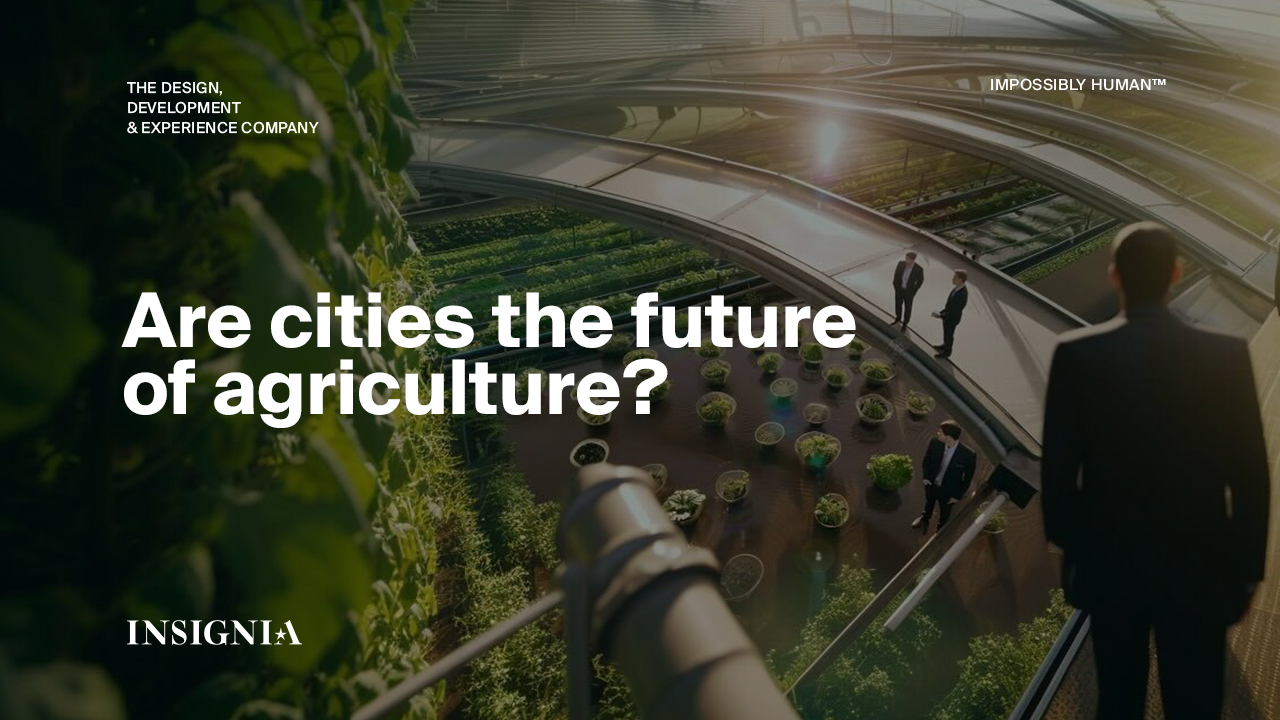The UAE’s reputation as a leader in innovation was further reinforced by last month’s announcement from Abu Dhabi’s Masdar City, detailing the launch of a vertical farming initiative in partnership with Alesca Technologies.1
By integrating cutting-edge hardware and artificial intelligence systems, the project marks a significant advancement in urban agricultural practices, highlighting the nation’s commitment to pushing the boundaries of sustainable technological integration.
It is a vital step in the journey towards fully realizing the potential of integrating vertical farming into future urban and agricultural policies. Enhanced food security, nutritional access, and urban resilience, all key outcomes of vertical farming, represent crucial benefits as we face the prospect of feeding over 9 billion people globally by 2050.2
As we look to the future, we foresee the full implementation of nascent innovative approaches, making vertical farming an increasingly viable agricultural model:
Integration with Renewable Energy Sources
The development of vertical farms that are powered entirely by renewable energy sources, such as solar panels and wind turbines, would not only make vertical farming more sustainable but also reduce operational costs.
Smart Farming Technologies
The potential of the Internet of Things and machine learning algorithms to monitor and automate the environmental controls in vertical farms could optimize growth conditions for each plant species, leading to higher yields and lower resource consumption.
Modular and Scalable Designs
Vertical farming could become more accessible by developing modular, scalable systems that can be easily implemented in a variety of urban spaces, from small community gardens to large commercial buildings.
Community Integration
Vertical farms as multi-use spaces would not only produce food but also serve as community hubs for engagement around sustainable agriculture. This could include public tours, workshops, and farm-to-table restaurants to connect people with their food sources.
Waste Recycling Systems
The further development and integration of recycling systems within vertical farms, where organic waste is composted and reused as fertilizer, could create closed-loop systems that result in even more significant reductions in waste.
Rapid urbanization, shrinking arable land, climate change, and the increasing strain on water resources demand solutions that vertical farming uniquely offers.
As we advance, the collective commitment of governments, businesses, communities, and individuals will be crucial in redefining urban agriculture, making it a cornerstone of resilient, sustainable, and thriving urban communities worldwide.
Insignia Worldwide crafts new realities at the intersections of strategy and storytelling, by challenging what is humanly possible and creating what is Impossibly Human.TM
1 masdarcity.ae
2 Vertical Farming for the Future – USDA
